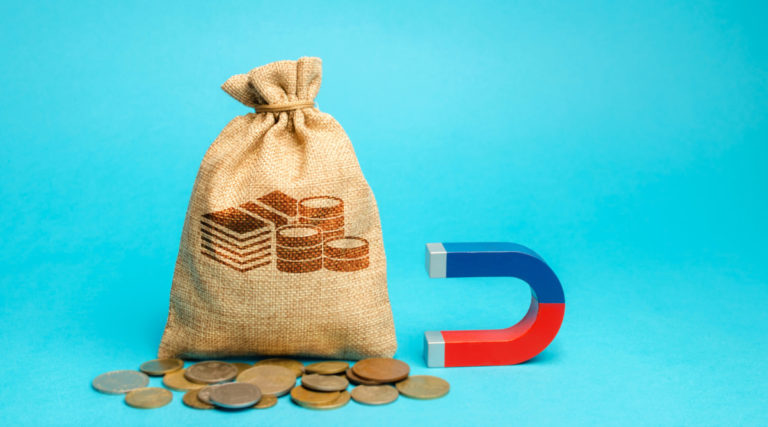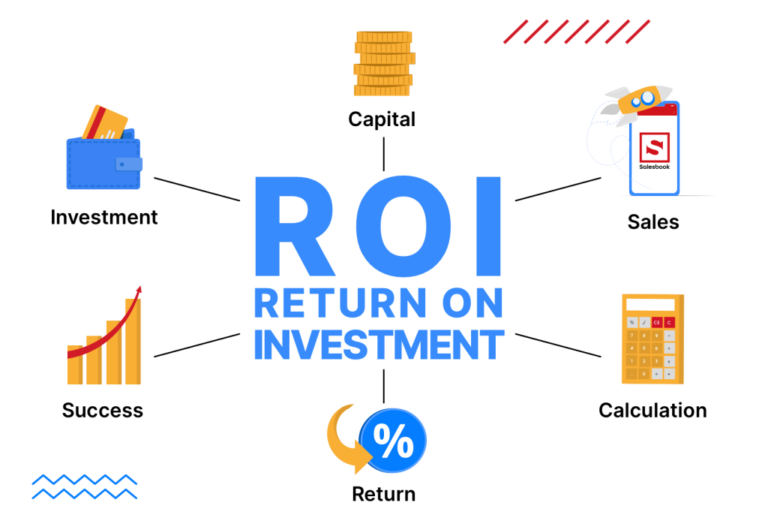Making a profit implies a constant turnover of capital, money must be constantly invested in something profitable, profitable and modern.
In other words, funds must be constantly invested in order to increase them. Investments have become an integral part of the country’s economy, as they provide the availability of tangible and intangible assets that are needed for further growth. Below we will consider what investments are, their types, and what is more profitable to invest money in.
Investments can be cash, stocks, bonds, securities, loans, vehicles, personal property and more. Let’s give an example: for athletes, regular training is an investment in future victories.
Investments are those investments that meet the following criteria:
- deposits bring profit to the investing person;
- The term of capital investments is usually one year or more;
- a clear direction and understanding of where to invest free funds;
- The main purpose of the investment is the personal benefit of the investor;
- riskiness, even if the object of investment is reliable assets.
The source for investments is personal funds attracted from outside or borrowed.
Personal (own) funds consider the fixed capital of the enterprise, the company’s income, reserve fund, etc.
Borrowed funds are loans or loans taken for business purposes. As a rule, such funds are taken for a certain period with a further return.
Raised funds is money received in the financial market, for example, from the issue of securities or other capital.
The process of investing money to make a profit is called investing. In fact, almost everyone is now investing, because education is also an investment in the future, because having knowledge and a diploma, you can find a good job that will generate income.

Investment resources are funds, monetary assets, opportunities that are used in the process of investment activities.
Investment income is the final financial result from investing capital or securities. To calculate the indicator, it is necessary to subtract the purchase price of an investment instrument from its sale price.
Investment instrument is considered to be everything in which you can invest funds with the subsequent receipt of a certain income, which will depend on the type and type of asset acquired.
Investment instruments can be classified by types of deposits:
- real;
- intelligent;
- financial.
Real instruments are considered to be investing in real forms of capital, for example, buying a land plot for building a house or purchasing finished real estate.
Intellectual investments are investing in yourself. For example, education, advanced training, studying at a prestigious university. In addition, it is possible to invest in the employees of the enterprise as part of a program for advanced training or retraining of employees.
Financial instruments are usually those investments that interest the investor the most. These can be stocks, bonds, deposit accounts, transactions with currencies, and more.
Types of investments, their classification
There are many types of attachments, each with unique features and characteristics. Criteria for evaluating investments distinguish six main types of classifications.
By investment object
The most important characteristic of a financial investment is the object in which the money is invested. The object is:
- enterprises under reconstruction, completed or under construction, the purpose of which is the production of new types of products or services;
- sets under construction or objects under reconstruction, focused on the performance of a single task;
- production of new goods or services in a ready-made working enterprise;
- development and introduction of new types of products or equipment into existing production.
The following types of investment are distinguished:
- Speculative investment is the purchase of an asset (currency, precious metals, stocks, etc.) for its subsequent resale at a higher cost.
- Financial investment is the acquisition of various financial instruments, such as stocks, bonds, leasing, lending to various categories of customers.
- Venture investments – such investments can be used to finance new companies that are actively and rapidly developing. This implies that in the future they will begin to bring a lot of income and profit.
- Real investment is investment in real forms of capital or production. This refers to the purchase of fixed assets, real estate, a trademark, or other objects that are associated with the implementation of the operational activities of the company or the improvement of the quality of personnel and their working conditions.
By investment period
It is important for the investor to know for how long the funds will be invested, therefore, the following types are distinguished by the investment period:
- Short-term is a deposit whose duration does not exceed one year.
- Mid-term is a type of investment, the duration of which is from one to three years.
- Long-term is a type of investment with a duration of three to five years or more.
By ownership
Depending on who owns the investment funds, the following forms of investments are distinguished:
- Private is an investment made by an individual.
- Foreign is an investable capital owned by foreign citizens (citizens of another state) or companies.
- Government investments are funds taken from the budget of a certain country. The subjects of investment are various government bodies.
- Mixed are attachments of several of the above entities at once.

By investment goals
Depending on the pursued purpose of investment, there are:
- Direct investment is the investment of capital in an existing company that sells goods or services. In this case, the subject receives at least 10% of the authorized capital of the enterprise.
- Indirect investments are capital investments through various intermediaries, which are financial or investment specialists.
- Portfolio – investing in portfolios of securities (stocks, bonds). In this case, active financial management is not expected. In other words, such a process is called the formation of a firm’s investment portfolio.
- Intellectual – funds that are planned to be invested in research and development and development of new innovations, as well as staff training and various trainings and professional development.
- Non-financial – funds used to acquire copyright, intellectual property, franchises, patents, etc.
By reproduction method
This classification includes the following types of investments:
- Gross – funds invested in the construction of new facilities, in the purchase of means and objects of labor, in building inventory and intellectual values.
- Renovation – capital invested in the reproduction of the company’s fixed assets and depreciable intangible assets, usually in the amount of depreciation charges.
- Net investment is the difference between total gross investment and depreciation.
By risk level
An important indicator of investment activity is the level of risk. It is directly dependent on the level of return on investment. In simple words, the higher the level of risk, the higher the amount of profit from an investment instrument.
Here attachments are divided into 4 groups:
- Practically risk-free – artificially created situations, for example, an insured bank deposit in the amount of 1,400 thousand rubles, which is paid by the deposit insurance agency in the event of the bankruptcy of a financial institution.
- Conservative – below-average risk in an established investment market.
- Moderate – risks assessed as average market.
- Aggressive – risks that are rated as above average in the current market.
In the Russian market, some investors are ready for high-risk investments in order to maximize profits. Aggressive risks can be reduced by diversifying investments, that is, distributing funds among several types of deposits.
Who are investors

In the first case, these are cash, real estate, shares, etc. Intangible benefits include obtaining a prestigious status, the embodiment of one’s own ideas or plans, as well as other social benefits of life.
Investor goals:
- security of material investments;
- yield;
- profit growth;
- liquidity of invested assets.
Who can be an investor
According to Federal Law No. 39, individuals or legal entities created on a contractual basis of joint activities and not having the legal status of associations of legal entities, state bodies, local governments, as well as foreign business entities can act as an investor.
Any person who has a certain amount of money that needs to be invested in a profitable business can become an investor.
Investor rights
The investor has the right to:
- Performing activities related to investment, with the exception of activities prohibited by law.
- Independent calculation of the volume of invested assets, as well as their direction.
- Combining your own assets with the funds of other investors, in order to increase capital investments.
- Ownership, use and disposal of financed objects, as well as the result of their activities.
- Control of intended use of invested funds.
- The transfer of rights to manage and dispose of investment objects to third parties or authorities.
Types of investors
There are many types of investors that differ in the ultimate goal of investment and ways to achieve this goal:
- Private. This is a rather generalized concept, since among such financiers there can be both beginners and experienced investors who strictly follow the rules and laws of this type of activity.
- Foreign. These are persons engaged in financing in the territory of another state. Attracting foreign investment brings a huge advantage for the subject of the economy.
- Institutional. This is the asset manager. This happens through the accumulation and transfer of capital from private public investors.
- Strategic. The main goal of this entity is to gain full control over the funded object. This includes the acquisition or acquisition of a company or enterprise.
- Straight. This is a person whose object of financing is a part or share of the authorized capital of an economic entity and the purchase of its shares for the purpose of further resale.
- Financial. Prefers to invest in securities, financial instruments and other economic assets. The income of a financial investor is made up of changes in quotations on the securities market.
- Forex investor. A person who specializes in trading assets on the forex market, while using currency-related investment tools and methods. A narrowly focused type of activity that will bring good passive income in the future.
- Qualified. This is a specialist who is licensed and has the necessary experience to trade in the securities market.
- Venture. A person who finances innovative activities and new investment projects in order to receive income from the promotion and growth of a business. This type of financial activity is associated with high risks.
- Potential. A person who has the assets necessary to bring a business idea to life.
- Individual. Usually this is an individual, less often a legal entity, which is a small link in the investment market.
Co-investor

Let’s take a simple example from the construction industry. Buying an apartment is much more profitable at the stage of its construction than buying a finished property. But in addition to savings, you can get an additional benefit in the form of non-payment of income tax if you participate in the purchase process as a co-investor. A co-investment agreement is concluded with the buyer, on the basis of which the citizen will not be considered the buyer of the property, but acts as a co-investor (construction shareholder), therefore, he is exempt from paying income tax. In this case, the value of real estate is purely investment in nature and is not considered a traditional purchase.
In order not to get into an unforeseen situation, you should correctly conclude a co-investment agreement with an investor. A co-investment agreement is a form on the basis of which a co-investor pays part of the property or its full cost, and after putting the investment object into operation, he can register it as his property.
Where to invest. Investment methods. How to invest properly
By financing this or that project, you make your money work and bring good income in the future. But when investing money, do not forget that there are certain risks that entail losses. In the end, you can not only not earn, but also lose existing assets.
The most important rule of investment is the principle of risk diversification. The essence of the rule is that the free funds invested must be divided among themselves and invested in different projects.
Let’s say that there is an amount of 200,000 rubles that needs to be invested in a profitable business. To reduce risks and increase the level of profitability, it is necessary to select several suitable investment projects. Suppose a client wants to invest in ETFs, stocks, forex, and deposits. Next, you should divide the free funds between these tools, depending on how much a person is willing to take risks.
Consider the main and popular ways of financing in more detail.
To real estate
Real estate today is the most popular option for investing money, as consumer demand for apartments, houses, townhouses and other residential premises has always been and will be. Real estate is needed not only for housing, but also for doing business, work, so this financing tool will never lose its value.
When choosing real estate for investment, it should be remembered that its market value and the liquidity of the project depend on many factors: the general economic situation in the Russian Federation, the regional situation, etc.
There are two ways to invest in real estate:
- letting out property for hire;
- Further resale of residential property
Letting or renting a home will act as passive income. The income will go monthly, while without physical and material costs, it is enough to have the right of ownership of the property.
Further resale of housing will bring the expected benefits in the event that the apartment is sold at a higher cost. In some regions, there are difficulties in selling real estate at a profitable price, as demand does not always match supply.

There are some ways in which the level of income increases:
- acquisition of a residential property at the time of a fall in price, with subsequent sale during a period of increase in value;
- purchase an object at the time of the start of construction of a house, and sell housing after putting the house into operation;
- buying a house in poor condition, then refurbishing it and selling it at a premium.
Investing in real estate is recommended when there is a general economic downturn in the country.
In franchise
You can open a franchise business in the following areas and industries:
- construction and repair work;
- realtor services;
- tourism agencies;
- beauty salons and other shops;
- catering outlets and more.
There will be a guaranteed income if the following criteria are taken into account and studied before buying a franchise:
- time on the market;
- a complete package of documentation for the finished product;
- contract term;
- conditions for starting a franchise, etc.
The payback period of a franchise can be divided into three groups:
- fast payback business – 6-12 months;
- average payback – 2-3 years;
- Slow franchise payback – from 3 to 10 years.
The disadvantage of investing in franchises is the need to fully comply with the terms of the contract, a fixed tariff for products and services throughout the chain of stores, work according to the franchisor’s standards, etc.
In securities
To invest in securities, you must have serious knowledge in the field of finance and economics. You can get income only if you have experience playing the stock exchange and a deep knowledge of the intricacies of the housekeeper. Financing the first stocks that come across will not bring income. If the necessary experience and knowledge are not available, you can provide assets for trust management to an experienced player or broker.
Investing in securities does not give a one hundred percent guarantee of high income, but if the investment is successful, the client can get a good income, sometimes reaching up to one hundred percent.
To bank deposits
One of the most affordable investment tools is bank deposits. The average annual rate in the country is from 6 to 10% per annum.
Today, in the banking sector, there is a decrease in the interest rate on deposits, so before choosing a financial institution, you should carefully study all the offers and choose the most suitable option.
Benefits of a deposit account:
- deposit insurance in the amount of 1,400,000 rubles in case of bankruptcy of the company;
- You can find out the term of the deposit, as well as the final amount of the investment, in advance;
- accessibility, since any citizen over 18 can open a deposit account;
- reliability and security.
It is worth investing only in large financial companies that have been operating on the market for a long time and have a positive experience of cooperation with clients: Sberbank of Russia, Rosselkhozbank, VTB24, etc.
Stocks
Investing in stocks is risky, but even with a positive outcome, you can get a good return.

You can benefit in the following ways:
- due to the growth of the share price on the stock exchange;
- due to transferred dividends.
When investing in stocks, you should regularly monitor the possible risks and follow a predetermined strategy – buying a stock with a strongly growing trend, after a slight drop in price. In other words, it is more profitable to buy “undervalued shares” of prestigious and promising organizations, whose shares have fallen in value for a short time.
To cryptocurrencies
In recent years, the price of bitcoin has only been growing, so there are already millionaires who have made their fortune by investing in cryptocurrency. However, do not forget that cryptocurrency this is a very risky investment tool, since in one day bitcoin can fall by 8-20%, or increase. For a year, you can increase the level of profitability 2-10 times, or you can lose absolutely all assets.
To startups
Startups are unique projects in the social and commercial sphere of the economy. With the right choice of an investment project, a good profit is obtained, because in the future they have a high level of profitability.
Injecting money into a startup is a high-risk way of investing, since 15-20% of such projects bring income. The rest will most often be unprofitable, so you should not spend money on financing such ideas.
The first way of financing is considered to be the conclusion of an agreement directly with the financed company, as many are looking for investors on their own. Also, funds are invested at special investment sites, for example, cashbury, where startup owners present projects.
The advantage of injecting funds is the opportunity to invest in a large number of business areas, both in the Russian market and abroad.
On the Internet
Today, the Internet has become one of the most popular areas of business. A large number of businessmen who earn a lot of money work on the Internet.
Investors who wish to profit from working on the Internet can choose the following areas:
- opening an online store;
- maintaining a group in social networks;
- information resources;
- blogging;
- opening various sites with entertainment, etc.

Here you can buy a project already promoted by someone, or open it yourself from scratch. An important factor is the attendance of the resource, since the level of income will depend on this. The more visits to the Internet site, the more promotional offers, affiliate programs, etc. will come.
To attract as many visitors to the site as possible, it must be designed in a unique way to interest the visitor.
ETF
Securities for the portfolio are selected by a special manager, and the shareholder himself has nothing to do with this process. You can easily sell your part, so this method of investment is considered highly liquid.
The advantages of mutual investment are:
- assets are managed by professional people;
- ETF is available to any citizen;
- the resulting profit will not be taxed;
- State control of the mutual fund.
The average return on this type of investment reaches 30%, and sometimes up to 50%.
Stock market
There are two ways to become a stock market participant:
- using classic brokering;
- Internet market participation
In the first option, a large investment will be required, since the minimum amount for financing is at least $10,000. The broker, acting on behalf of the investor, will carefully study the situation on the market and offer the best investment options. With successful work, part of the profit will have to be given to the broker.
If you participate in the market yourself through the network, you will have to independently determine and search for companies in which you should invest assets. The difference lies in the fact that you do not have to give part of the income to the broker for useful tips and tricks.
To business
Investments in opening a business will always be the most profitable, since opening and running a business guarantees income in the future. To achieve profit, you need to take into account a number of circumstances:
- choose the right niche in the market;
- be a professional and successful entrepreneur;
- take into account the originality of the idea, the demand for it;
- competently conduct business and more.

Judging by today’s statistics, some of the opened companies go bankrupt at the initial stage of the formation of a business idea, so it is much more profitable to buy a franchise, which was written about above.
Forex
To trade on the market yourself, you need to know the specifics and principle of operation of the foreign exchange market. If there is no such knowledge, then trade will not bring income, but rather the opposite.
Benefits of investing in the foreign exchange market:
- opportunity to earn income up to 100% daily;
- Knowing the dynamics of the growth of the exchange rate helps to protect yourself from inflation;
- no time limit;
- Only the Internet is needed to track the exchange rate, change quotes and determine the effectiveness of investments.
Since the currency is unpredictable, in order to receive income, it is necessary to closely monitor its change and anticipate further actions.
Investing for beginners
To begin with, each novice investor should familiarize himself with the basic concepts encountered in investment activities:
- Assets – what brings income to the investor: stocks, real estate, currency, etc.
- Dividendsis the portion of a company’s income that is distributed among shareholders.
- Quote – fixed rate of the asset at which the transaction is planned.
- Trader– a person who actively trades in the financial market.
- Exchange – a market for various financial assets: currencies, stocks, bonds, etc.
- Liquidity is the ability of an asset to be quickly sold on the market.
- Aggressive investors – people who are ready to take any risk for the sake of maximum profit.
- Trusted manager – a person who manages the investor’s assets for a certain percentage.
- Deposit is an amount placed in a bank account that generates income in the form of dividends.
These are the basic concepts that are used in the process of investment activity.
How to start investing
Most successful investors started their journey with small investments. In their autobiographies, they willingly share recommendations on how to start investing:
- First of all, it is worth familiarizing yourself with the basics of investing. Here you do not need to have a higher economic education or experience in the stock exchange. The main thing here is to know the concepts and formulations in order to understand the processes taking place on the exchange and communicate with brokers in an understandable language.
- Next, you need to set a goal. After learning the basics, set a goal: what kind of income is needed as a result? Achievement of the set goal stimulates further actions.
- Choose the style of future work. Further tactics of work and income received will depend on the chosen method.
- Calculation of available funds. Before investing from scratch, it is worth calculating free funds. It is necessary to start with minimal investments, so that it would not be a pity to part with them.
- Search for a broker. This step should be taken carefully, as a good financial specialist will be able to help and give useful recommendations.
- Risk assessment. The choice of the optimal and correct strategy is directly related to the final goal.
- Choosing an investment instrument. At the initial stage, it is recommended to use different instruments for investments: buy shares, currency, deposits, and more. After receiving the first income, it will be easier to navigate and choose the direction of work.
- Diversification of investments. This has already been discussed above – it is more profitable and safer to use several investment instruments at once.
- Frequent review of the investment portfolio. If you work with different types of investments, you need to regularly monitor price changes and study stock market news.

These rules must be observed and used regularly in the work at the initial investment stage.
Useful tips for a novice investor
Below are some useful tips that will be useful to a novice investor:
- You should not invest the entire amount in one investment instrument. It is best to divide the assets into several parts and invest in different directions.
- Part of the capital (45-65%) invest in less risky assets, such as real estate.
- At the initial stage, it is recommended to have some savings, which will last for 3-6 months of existence. This is done in case the investment does not bring any income.
- It is important to have a source of passive income in order to receive funds at a time when there is temporarily no work.
- Before investing, read the reviews and comments about the organization to make sure that this is a real company, and not scammers.
Examples of investments
Having a certain amount of money at the initial stage, it is necessary to correctly determine the direction where it is best to invest in one or another amount:
- Invest the amount of 90,000-180,000 rubles in starting a business or financing the business of friends or acquaintances. And let the amount of 10,000-20,000 rubles go to attend trainings. If you do not want to invest in a business, put funds in a bank deposit.
- Divide the amount of 250,000-450,000 rubles into several parts and invest in business, gold and bonds, as well as in the purchase of real estate.
- Invest the amount of 1 million rubles in any available instrument. For a million rubles, buy real estate, or housing at the construction stage with further resale after the house is put into operation. Divide the funds into parts and invest in different instruments: invest 300,000 in the purchase of shares of companies, 550,000-600,000 invest reliable instruments – bonds, gold, etc., and invest the amount of 60,000 in bitcoin, in case it rises sharply in the coming years. The remaining amount of money can be spent on starting a business.
To avoid the loss of personal assets, you should not invest in projects that promise quick profits and high interest rates, as these are mostly scammers that pump out money.























